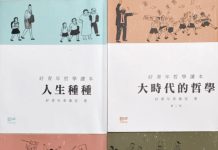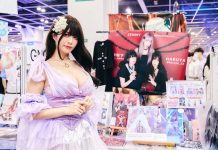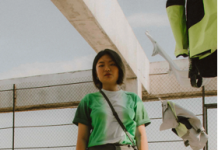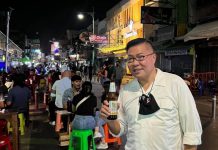When police cleared, Causeway Bay, the last of the occupied areas, in December, the 79-day Occupy Movement finally drew to a close. The occupation which became known as the Umbrella Movement began in late September and drew together citizens from different walks of life in a push for genuine universal suffrage.
As the government did not reply to the movement’s demands, some protesters retreated from the occupied sites in Mong Kok, Causeway Bay and Admiralty with tears. Some left behind yellow banners and slogans stating, “We will be back” and one giant banner proclaimed “It’s just the beginning”.
Indeed, the occupation may have ended, but for many Umbrella Movement participants, the struggle for democracy continues. Society may be more polarised than ever, but the movement has also awakened many Hong Kongers, particularly the young, to be more aware of the city’s political development. As the debate over political reform continues, we can expect citizens to participate more actively in political issues and events.
In our March 2015 issue, Varsity looks at the political awakening of young people, celebrities from the local entertainment industry and professionals, and at the challenges they face in their struggle.
Young people were often seen at the forefront of the Umbrella Movement, which was largely student-led. The scale of their involvement in civil disobedience was to some extent a reflection of their disillusionment with established electoral politics. There is an element of irony, therefore, in the fact that some of them are now planning to join future elections and enter the system to challenge the pro-establishment camp.
We hear from these young people, some of whom have already begun their community work to build up support for the district council election later this year. As the pro-establishment camp was the biggest winner in the previous election, what strategies do these young people with limited resources have?
Apart from young people, the presence of celebrities on the stage in the occupied area was also a striking feature of the Umbrella Movement. As these public figures have big followings and attract media attention, we look at their unique impact on the movement.
The high-profile and active participation of stars, like singer Denise Ho Wan-see, may be surprising as celebrities have not been as vocal in politics since the 1989 Concert for Democracy in China. However, their participation comes at a high cost. The mainland entertainment market is huge and outspoken stars stand to lose big bucks and career opportunities.
Compared with the previous two groups of people, professionals may be less vocal, but their impact on the city’s political development is also significant. With stable jobs and income, professionals tend to be rather quiet when it comes to politics. However, in recent years, they too have been awakened and are speaking up to safeguard the city’s core values.
We talk to pan-democratic professionals who have set up new platforms to gather like-minded peers to advocate for democracy within their sectors. These groups are seen by some as challenging the existing associations and organisations representing the profession. We talk to the professionals who have joined elections for functional constituency and election committee seats, as well as those who are spearheading new platforms.
We hope these stories will help to explain how young people, celebrities and professionals have been politically awakened, and how they hope to continue sowing the seeds of democracy.
Varsity’s reporters and editors have put tremendous effort into producing the March issue. I sincerely hope you enjoy your read.
Macau Mak
Editor-in-Chief








































